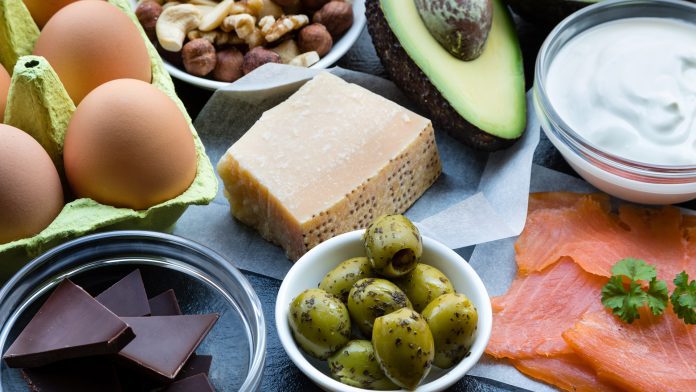
A new study from scientists at the University of California Riverside analysed how the popular keto and intermittent fasting diets work on a molecular level and whether both sexes benefit from them equally.
Keto and intermittent fasting diets are similar, focusing on the body burning fat, resulting in weight loss. Keto focuses on eating low-carb foods and getting most daily calories from proteins and fats. The diet aims to force the body to use fat as fuel, resulting in weight loss.
In contrast, intermittent fasting restricts eating to a small window of time. During the hours without food, the body exhausts sugar and burns fat instead. The fat converts to ketone bodies that the brain can use as fuel.
Keto and intermittent fasting diets may not work
Keto and intermittent fasting diets are popular; however, scientists have yet to identify the genes or proteins that enable the diets to work and whether they work.
“The metabolic switch between sugar and fat — it’s amazing that we don’t understand it yet. But if we do, we can tell you if keto is right for you,” said UCR biochemist Sarah Radi.
A $2m grant from the National Institutes of Health will allow Radi and cell biology professor Frances Sladek to investigate the metabolic switch, allowing the scientists to understand how it might work.
The researchers found that the key is likely a protein called HNF4, found at high levels in the liver. It is a transcriptive factor that converts DNA into RNA that subsequently makes new proteins, and it comes in two forms, P1 or P2.
The UCR-led team investigated P2 as a pro-cancer protein. However, they did not find the link to cancer, but they did notice mice with high levels of P2 in their livers also had different genes for metabolism.
Furthermore, they uncovered that P2 shows in greater quantity later in the day, which could explain why mice didn’t gain nearly as much weight if the eating times were restricted – even if the mice ate too much.
Radi suspected that an energy-sensing enzyme could cause the switch between P1 and P2, enabling the process of burning fat for energy.
How successful are the diets for women?
Special attention was paid to the ways male and female mice respond to the keto and intermittent fasting diets. Some research suggests there are differences.
“Keto doesn’t appear to work as well for women because they metabolise fat differently and have different genes turned on and off in response to fasting,” Sladek said. “But we do not know why that is nor how it happens — that is what we are hoping to learn.”
Whether the diet is effective for any sex, the researchers cautioned against taking any diet to an extreme. It is unclear whether all of the fat gets metabolised on a keto or fasting diet, or whether a lot of it just accumulates in the body. Standard Japanese diets contain 20% fat, American diets average 35%, and keto diets can contain up to 70 or 80%, which is likely an unsustainably high amount.
“If you eat a lot of fat, it will eventually make you fat. If you eat too much of anything, it will make you fat — including carrots,” Sladek said. “Ultimately, the most important thing is the amount you eat, what you eat, and the time of day that you eat.”
























